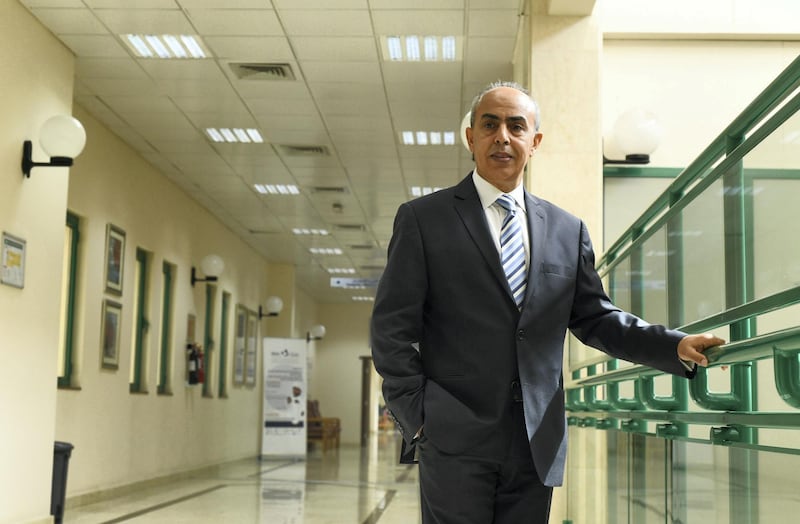A young child whose life was made a misery by chronic bowel disease has undergone what is believed to be the region’s first faecal transplant.
Fares, 5, had the treatment at Sheikh Khalifa Medical City for a severe case of chronic inflammatory bowel disease or ulcerative colitis, a rare inflammatory condition.
His family said he was wasting away and had endured “pain and suffering” since he was two.
Fares suffered severe abdominal pain and almost constant bloody diarrhoea, needing to rush to the toilet more than 20 times a day.
“We spent all our time in the toilet with him,” his father, 47, told The National. The Jordanian family asked to remain anonymous.
“He was not growing and had a very narrow colon that doctors said could close and burst. His colon also had several inflammatory polyp-like growths that could have developed into cancer.”
His treatment at the government hospital was made possible by a healthy donor, techniques new to the region and permission from the country’s Islamic affairs authority, since faeces are seen as impure.
Doctors had tried aggressive immunomodulator treatment to normalise the immune system, since Fares was three, along with other new classes of drugs. Medications included two injections a week in the toddler’s thigh and regular iron and blood infusions.
At one point Fares refused the injection telling his parents: “It only gives me pain. I am not getting better.”
“I emailed centres in the US, UK, Hong Kong and Australia and they refused to take my son’s case because he was too young, and there is no cure for the condition,” his father said.
Doctors feared their only option was to remove the boy’s large bowel, which would have left him with digestive problems for the rest of his life.
“That was were we were heading,” said Dr Amer Azaz, a paediatric gastroenterology consultant at SKMC. He suggested faecal microbiota transplantation.
But it took almost a year for him and his team to get the approval and permission to perform the procedure at SKMC.
“Many people were surprised that we wanted a faecal transplant but I had no other option. I was losing my son,” Fares’ father said.
The most difficult part was finding a donor who had not taken antibiotics in at least six months. Antibiotics often strip the gut of its natural healthy bacteria.
“When family and friends saw my son’s situation, they were sad that they couldn’t donate,” the father said.
A suitable donor was found after six months of screening – a girl, 11, who is a family friend.
“In general only 4 per cent of volunteers are appropriate donors. One man’s waste is another man’s treasure,” Dr Azaz said.
The donation is a stool sample mixed with saline, filtered and injected into the recipient via a colonic tube.
Fares underwent the transplant on February 13.
“It required meticulous planning. The stool had to be produced every day for seven days,” Dr Azaz said.
“The sample had to be picked up from the donor’s house at 7am and brought to the hospital. It had to be processed immediately to be thin and homogenised, then delivered to the theatre for the colonoscopy,” Dr Azaz said.
Doctors said it will take a few months to determine if it was a success, but the family is already looking for a second donor – ideally a “super donor”.
“The first transplant was considered a success because my son’s colon immediately became wider.” But another transplant is needed from a “super donor”, his father said.
A super donor is someone who has never had antibiotics or a blood infection and who has a strong, healthy gut.






